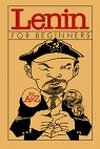Oscar Zarate
Author of Freud for Beginners
About the Author
Image credit: Courtesy of Serpent's Tail Press
Works by Oscar Zarate
Associated Works
Tagged
Common Knowledge
- Canonical name
- Zarate, Oscar
- Birthdate
- 1942
- Gender
- male
- Nationality
- Argentina
Members
Reviews
Lists
Awards
You May Also Like
Associated Authors
Statistics
- Works
- 20
- Also by
- 28
- Members
- 3,474
- Popularity
- #7,324
- Rating
- 4.0
- Reviews
- 37
- ISBNs
- 118
- Languages
- 19
















Actually, it's interesting to compare Freud's current reputation to his actual work. He often seems to be dismissed these days as a sex-obsessed crank, but he pioneered the 'talking cure' approach to treating mental disorders and this continues to thrive. It is his emphasis on sexuality as the motivation behind nearly all behaviour that has been dismissed. I didn't previously realise, also, that he was moved the concept of 'hysteria' away from being exclusively female and wrote about how femininity and masculinity are social constructions rather than absolutes.
As with every other bit of psychoanalytic theory I've read, I just can't believe that there is a single universal model for human development and behaviour. Freud's may apply in some cases, but his emphasis on the Oedipus complex and infantile sexuality doesn't convince me. I rather like his model of the id, ego, and super-ego, though, as long as the impulses and desires within the model aren't all assumed to be sexual. Likewise, 'libido' is a tricky concept. As far as I can tell, Freud identifies it almost exclusively with sexuality, whereas I think Lacan did so only partially (distinguishing a 'sexual libido'). Personally, I think Lacan's definition is more helpful, although his theories are bewilderingly complicated.
I also wondered whilst reading this to what extent Freud thought the purpose of psychoanalysis was to achieve sort of ideal, balanced personality. Labelling fetishists, for example, as neurotics implies that they should identify the root of that behaviour and stop doing it. You could also argue, though, that if their neurosis isn't hurting anyone and doesn't upset them, there is no need. Psychoanalytic theory seems to have been taken up in the sphere of political theory, at least in the bit of Žižek that I've managed to read. That makes me think of psychoanalysis as a potential tool for persuasion, or simply to reduce heterogeneity. Rather than speculating vaguely, however, I should just read more Žižek. After all, the reason I've been working my way through several of the 'Introducing' series is that they provide helpful stepping stones towards reading and understanding other books. They are useful enablers.… (more)